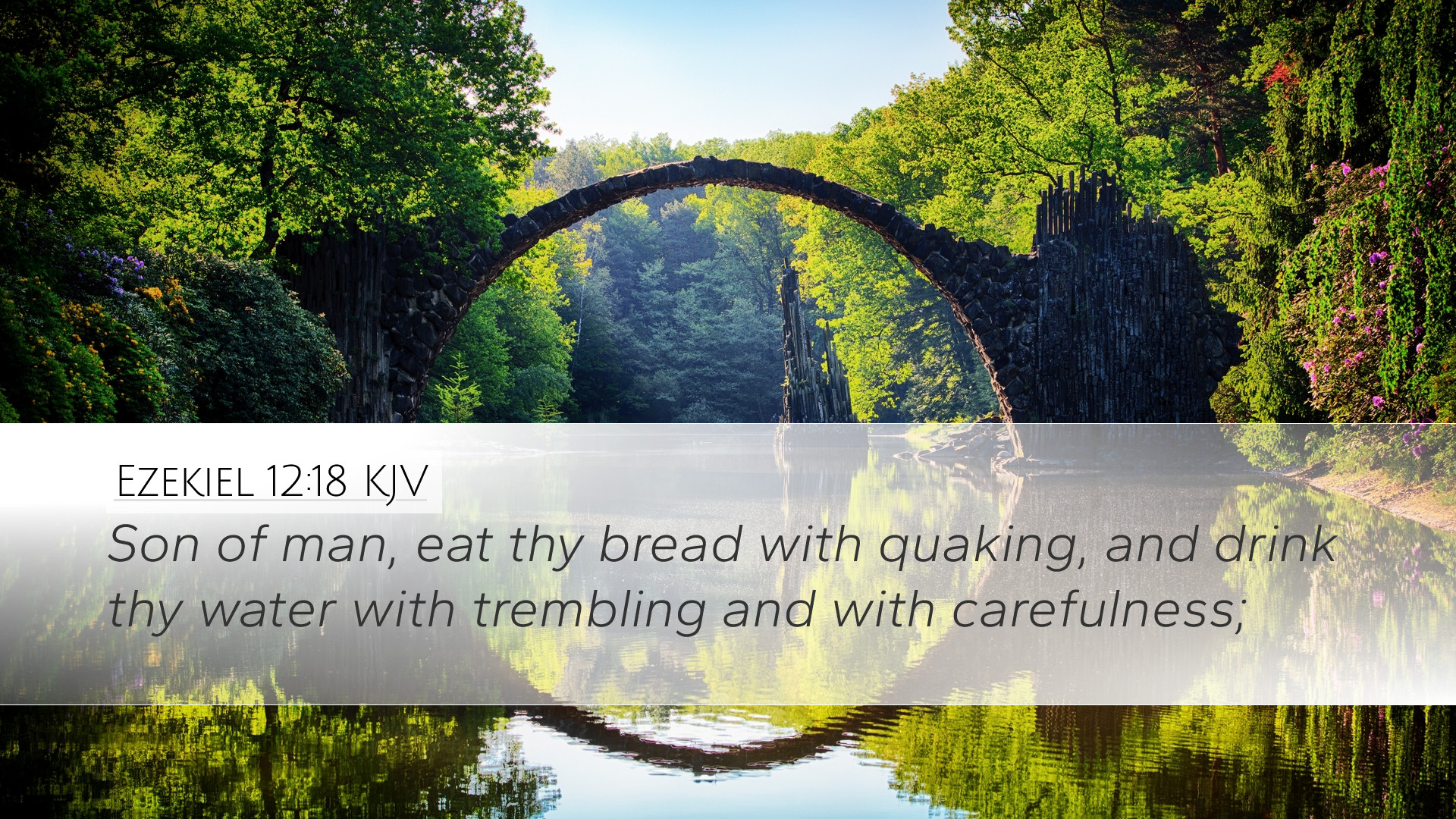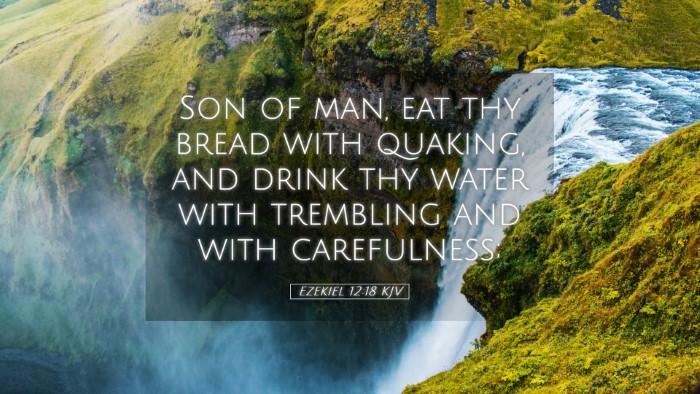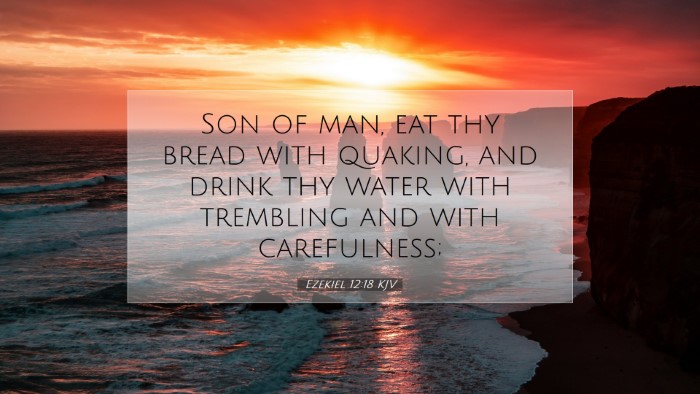Ezekiel 12:18 Commentary
Verse: "Son of man, eat your bread with trembling, and drink your water with trembling and anxiety."
Introduction
The verse Ezekiel 12:18 presents a striking image that encapsulates the dire conditions faced by the people of God during the Babylonian siege. Within the prophetic literature, Ezekiel serves not merely as a communicator of divine messages but also embodies the realities of those who grapple with the consequences of sin and impending judgment. This commentary draws from insights provided by public domain scholars such as Matthew Henry, Albert Barnes, and Adam Clarke, who explore the themes of anxiety, divine judgment, and the prophetic actions of Ezekiel.
Contextual Background
Ezekiel prophesies during a tumultuous period in Israel's history, specifically targeting the Jewish exiles in Babylon. This verse is part of a larger passage where God instructs Ezekiel to perform symbolic acts that convey His messages regarding the fate of Jerusalem. With the backdrop of captivity, economic hardship, and spiritual decline, the act of eating and drinking “with trembling” signifies the weight of impending judgment.
Historical Perspective
According to Matthew Henry, Ezekiel’s actions reflect the seriousness of this period as he engages in communal symbols of sustenance under distressing circumstances. The physical act of eating and drinking while trembling serves as a metaphorical demonstration that the people’s regular activities are now fraught with fear and uncertainty.
Exegesis of the Verse
The command to eat and drink “with trembling” captures the emotional state that accompanies God’s impending judgment. Albert Barnes remarks that such trembling indicates a state of trepidation, not just for their immediate physical needs but also for their spiritual and national existence. The anxiety reflected in this verse portrays a community deeply aware of God's displeasure and the consequences of their rebellion.
- Trembling as a Sign of Distress: The act itself is laden with existential horror; it denotes the internal struggle and fear of the people who feel the weight of their unfaithfulness.
- Symbol of God’s Presence: Adam Clarke notes that the trembling begins to highlight God's omnipresence in the midst of their despair, reminding the exiles that He has not abandoned them, even in their discipline.
- Physical and Spiritual Elements: The directive communicates both an immediate physical condition and a deeper spiritual reality—assurance amidst fear.
Theological Implications
This verse brings forth significant theological considerations, particularly regarding the nature of God’s judgment and mercy. In this moment of profound pressure, God uses Ezekiel as a means to reveal His heart: that He desires repentance and restoration rather than merely punishment.
The Nature of God’s Discipline
Matthew Henry emphasizes that this trembling reflects a necessary awakening for the people. The cognitive dissonance between their former perceived security and their current plight calls for a drastic reassessment of their relationship with God. It is a reminder that the consequences of sin are real and that divine judgment is both just and redemptive while evoking a call to return to righteousness.
Application for Today
For modern pastors and theologians, this verse serves as a poignant reminder of our own spiritual condition. Albert Barnes highlights the necessity for contemporary believers to approach their faith with the same sense of seriousness and reverence that Ezekiel portrays. The trembling not only signifies fear but also respect and understanding of God’s holiness.
- Encouragement for Authentic Worship: The emphasis on trembling invites worship practices that reflect a genuine acknowledgment of God’s sovereignty and a humility that comes from recognizing our own human frailty.
- Call to Repentance: There exists a dual theme of fear and hope—understanding that God’s discipline leads toward repentance opens pathways to grace and renewed relationship.
Conclusion
In conclusion, Ezekiel 12:18 paints a vivid picture of a people in turmoil, grappling with the consequences of their sin and the reality of divine judgment. The trembling that characterizes their eating and drinking becomes emblematic of a larger spiritual awakening that emphasizes repentance, reform, and restoration. Through the lens of this commentary utilizing the insights from Matthew Henry, Albert Barnes, and Adam Clarke, pastors and scholars alike can glean lessons about the seriousness of sin and the redemptive nature of God’s disciplinary actions. Thus, this verse resonates not only within the historical context of the exiles but also speaks powerfully into the contemporary church, urging all to approach divine providence with a heart attuned to both trembling and faith.


